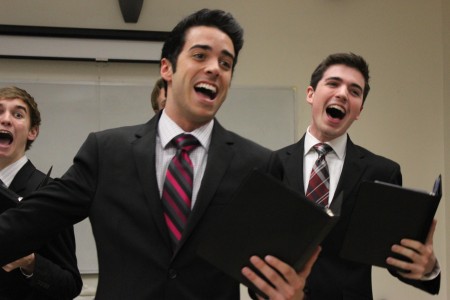The George Mason University Forensics team will travel to Rome on Wednesday to defend its world championship title at the International Forensics Association Tournament.
The 2012 IFA Tournament will last nine days, concluding on March 17. The IFA Tournament is held in a different city each year, with past locations such as Montreal in 2009, Berlin in 2010 and Budapest in 2011, where Mason emerged as champion. Most of the debaters competing in the tournament are students from universities in the U.S., Canada and the United Kingdom.
The IFA Tournament consists of four events: limited preparation, public address, interpretation of literature and parliamentary debate. These events will take place in hotel rooms and a banquet hall in the designated tournament hotel. Team members will spend several days in Rome preparing for the events. Preparation includes conducting research, practicing speaking and refining their form so the team will be ready to perform over the two-day competition period.
The tournament is an important point in the team’s competition year. Team members look forward to traveling and extending Mason’s global exposure.
“We are all going to work hard to represent Mason,” said team secretary Kate DeNardi, a senior public administration major. “We talk about legacy on our team — the idea of those who came before us — and we are a part of that.”
While in Rome, some team members must also complete a research paper in order to receive three credits for Communication 307, Field Study in Communication. All research for this paper, which is due at the end of the trip, is to be completed in Rome.
In addition to preparing for the tournament itself, the team can use the tournament as an opportunity to warm up for the national competition on April 6 at the University of Texas in San Marcos.
Going into the IFA Tournament, the team is determined to represent the best of Mason to the world.
“We are going to Rome to be able to put our hearts on the line, to show that we can represent, with sincere gratitude, our university for what they have given us,” said junior communication major Brennan Morris, a work study attaché. “As we seek to become more international as a university, these elements of breaking down cross-cultural communication and taking our passion for research, scholarship and teamwork to a whole new country [and] a whole new setting is what will help bring George Mason into the future, and we are extremely grateful for this opportunity.”







Comments